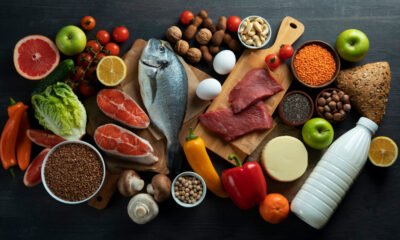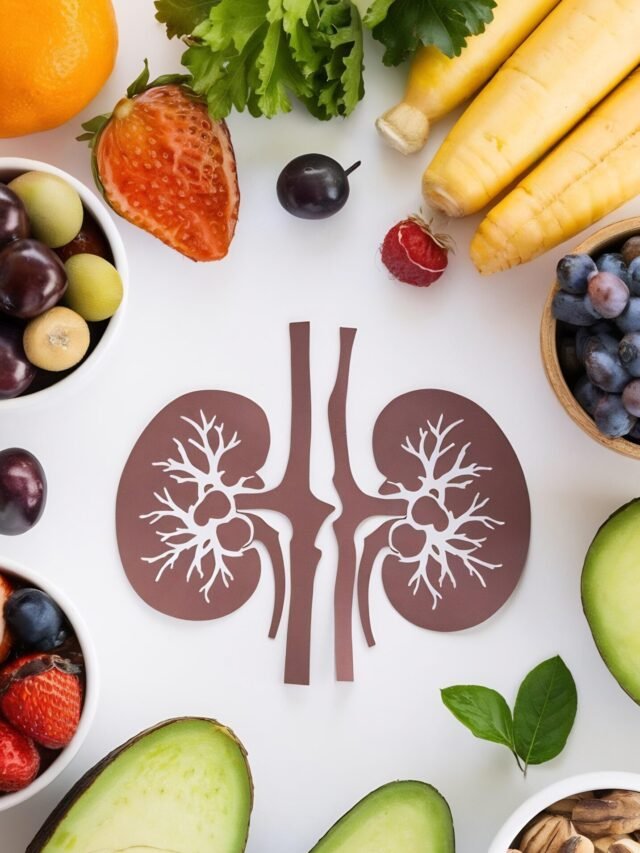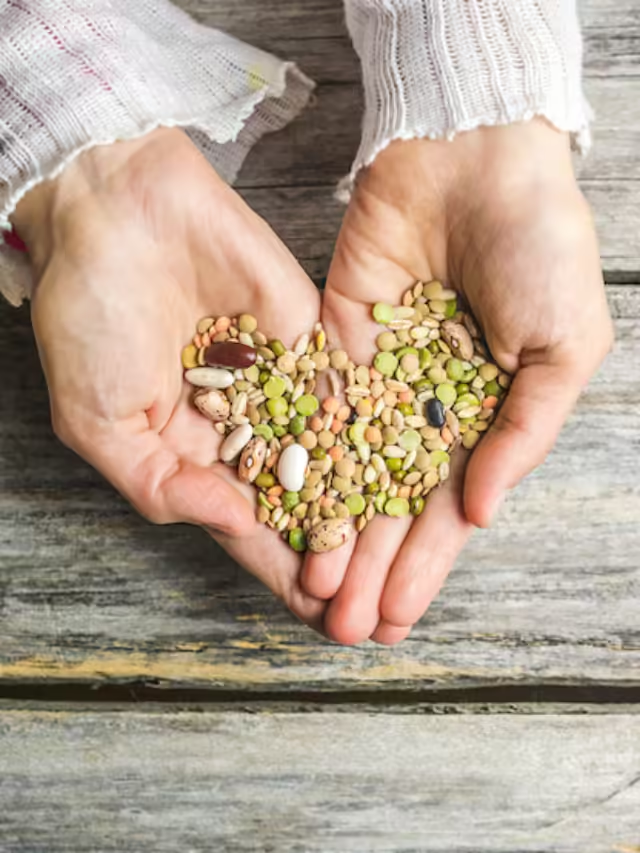Health
How Much Water to Drink Daily by Age – Expert Guide
 Staying hydrated is more than just drinking eight glasses of water a day. While that old adage might serve as a general rule of thumb, it doesn’t account for the fact that your water needs vary significantly based on age, lifestyle, body weight, activity level, and even the climate you live in. According to health experts from authoritative sources such as WebMD, Healthline, and the World Health Organization (WHO), water is vital to nearly every function of the body, and hydration requirements evolve as we age.
Staying hydrated is more than just drinking eight glasses of water a day. While that old adage might serve as a general rule of thumb, it doesn’t account for the fact that your water needs vary significantly based on age, lifestyle, body weight, activity level, and even the climate you live in. According to health experts from authoritative sources such as WebMD, Healthline, and the World Health Organization (WHO), water is vital to nearly every function of the body, and hydration requirements evolve as we age.
In this comprehensive guide, we break down how much water you should drink daily according to your age, and offer age-specific hydration tips that promote overall well-being.
Cardiac Arrest Alert: 5 Worst Cooking Oils That Increase Heart Attack Risk
Why Daily Water Intake Matters
Water plays a critical role in numerous bodily functions — from regulating temperature, cushioning joints, and aiding digestion, to flushing out toxins. Inadequate hydration can result in fatigue, dizziness, headaches, poor concentration, kidney stones, and more severe health problems over time.
Experts from Healthline and the CDC point out that proper hydration also enhances physical performance, boosts cognitive function, and supports skin health. Thus, understanding your daily water needs by age can make a significant difference in your health.
Factors That Influence Hydration Needs
Before diving into age-specific guidelines, it’s essential to recognize the variables that affect your daily water intake:
- Age and metabolism
- Body weight and muscle mass
- Physical activity level
- Climate and environment
- Medical conditions or medications
- Dietary habits (high-protein or salty foods require more water)
As per WebMD, individuals who consume caffeine, alcohol, or exercise regularly may need to increase their fluid intake to stay properly hydrated.
Heart Attack vs Cardiac Arrest: Key Differences Explained
Recommended Daily Water Intake by Age Group
Infants (0-12 months)
Water is generally not recommended for infants under six months, as breast milk or formula provides adequate hydration. From 6 months onward, small amounts of water (4-8 oz/day) can be introduced.
Children (1-8 years)
- 1-3 years: ~4 cups (about 1 liter) per day
- 4-8 years: ~5 cups (about 1.2 liters) per day
Children are more vulnerable to dehydration, especially during hot weather or physical activity. Encourage frequent sips of water throughout the day, especially if they are active or outdoors.
Tweens and Teens (9-18 years)
- Boys 9-13 years: 7-8 cups (1.6-1.9 liters) per day
- Girls 9-13 years: 6-7 cups (1.4-1.6 liters)
- Boys 14-18 years: 10-11 cups (2.4-2.6 liters)
- Girls 14-18 years: 8-9 cups (1.9-2.1 liters)
Puberty increases the body’s water demand. Teens involved in sports or physical activity need even more water. Sports drinks can be used occasionally but plain water remains the best hydration source.
How Protein-Rich Foods Can Help You Lose Weight Faster
Adults (19-59 years)
- Men: 13 cups (3 liters) per day
- Women: 9 cups (2.2 liters) per day
These are general guidelines from the National Academies of Sciences. Daily water intake should increase with physical exertion, hot climates, or illness.
Is 8 Glasses of Water Enough?
Not necessarily. This common rule often falls short of meeting actual hydration needs. You might require more water based on factors like sweating, dietary intake, or specific medical conditions.
Seniors (60+ years)
Older adults are at higher risk of dehydration due to a reduced sense of thirst and potential medication side effects.
- Recommendation: 8-10 cups (1.9-2.4 liters) per day
Incorporate water-rich foods like fruits, vegetables, soups, and herbal teas to improve hydration among the elderly.
Age-Specific Hydration Tips
Children
- Offer water over sugary juices or sodas
- Carry a fun, reusable bottle for school or outings
- Monitor signs of dehydration: dry mouth, dark urine, irritability
Adults
- Use water tracking apps or smart bottles
- Set reminders every 1-2 hours to take a few sips
- Drink a glass of water before every meal
Elderly
- Add lemon or fruit slices for flavor
- Ensure easy access to water throughout the house
- Monitor urine color as a hydration indicator
Supporting Hydration with Diet
As noted by experts from OnlyMyHealth and Hindustan Times, you can also improve hydration through your diet. Water-rich foods include:
- Cucumber (96% water)
- Watermelon (92%)
- Oranges, strawberries, peaches
- Tomatoes
- Spinach and lettuce
Drinks like coconut water, herbal teas, and diluted fruit juices can supplement hydration, though plain water remains the gold standard.
Top 7 Foods That Naturally Boost Breast Milk Production
Signs You’re Not Drinking Enough Water
Keep an eye out for these common dehydration symptoms:
- Headaches
- Dry mouth and skin
- Fatigue
- Dizziness or confusion
- Dark yellow urine
Chronic dehydration can lead to more serious problems like urinary tract infections, constipation, and kidney damage.
Myths vs Facts: Hydration Edition
Myth: You must drink 8 glasses of water every day.
Fact: Your water needs depend on your age, weight, activity level, and climate.
Myth: Thirst is the only hydration signal.
Fact: By the time you feel thirsty, you’re likely already dehydrated.
Myth: Coffee and tea dehydrate you.
Fact: While they have a mild diuretic effect, they still contribute to your fluid intake.
How to Calculate Your Water Needs
A general rule is to divide your body weight (in kg) by 30 to get your minimum daily water intake in liters. For example:
- A 60 kg person should drink about 2 liters/day
- A 75 kg person should aim for 2.5 liters/day
Use this alongside age-specific and climate-based considerations.
Final Thoughts: Make Hydration a Lifestyle
Water is not just a beverage — it’s a building block of life. Whether you’re a parent trying to keep your child hydrated, an athlete monitoring performance, or a senior focused on wellness, understanding your hydration needs is crucial.
Follow these evidence-based hydration guidelines, use practical tools, and listen to your body. Backed by trusted sources like WebMD, India Today, and Healthline, the data shows that personalized hydration is the new norm — and a step toward better health.
Frequently Asked Questions (FAQs)
Q. How much water should I drink in summer?A. Increase intake by 20-30% to compensate for sweat loss. Coconut water and fruit-infused drinks help.
Q. Can I drink too much water?A. Yes. Overhydration or water intoxication can dilute electrolytes. Listen to your thirst cues and balance intake.
Q. Does tea or coffee count toward water intake?A. Yes, but they shouldn’t replace water entirely.
Q. Should seniors follow the same rule?A. Seniors may need reminders or scheduled water breaks. Adding hydration-rich foods helps too.
Stay hydrated, stay healthy.
-

 How to3 weeks ago
How to3 weeks agoHow to Check if Your Tax Consultant E-Verified Your Return Properly
-

 Health3 weeks ago
Health3 weeks agoWhat Happens When You Drink Black Coffee Every Day for 30 Days?
-

 Technology3 weeks ago
Technology3 weeks agoPerplexity AI Now on WhatsApp: Ask Questions, Get Summaries, Generate Images & More
-

 Money3 weeks ago
Money3 weeks agoJSW Cement IPO Opens: GMP, Price, Subscription Status, Review & Should You Invest?
-
![ChatGPT 5 Launched: Who Can Access It, How to Use It & Is It Free? [2025 Guide]](https://www.regularstation.com/wp-content/uploads/2025/08/2DAdWvVdE7ivGpRiqcLMfU-400x240.jpg)
![ChatGPT 5 Launched: Who Can Access It, How to Use It & Is It Free? [2025 Guide]](https://www.regularstation.com/wp-content/uploads/2025/08/2DAdWvVdE7ivGpRiqcLMfU-80x80.jpg) Technology3 weeks ago
Technology3 weeks agoChatGPT‑5 Launched: Who Can Access It, How to Use It, and Is It Free?
-

 Cryptocurrency3 weeks ago
Cryptocurrency3 weeks ago5 Cryptos That Could Challenge Solana (SOL) And Grow Your Portfolio 5000% In 2025
-

 Health3 weeks ago
Health3 weeks agoCoconut Water Isn’t for Everyone: 6 People Who Should Avoid It
-

 Health7 days ago
Health7 days ago5 Best Protein Sources for Vegetarians and Non-Vegetarians






